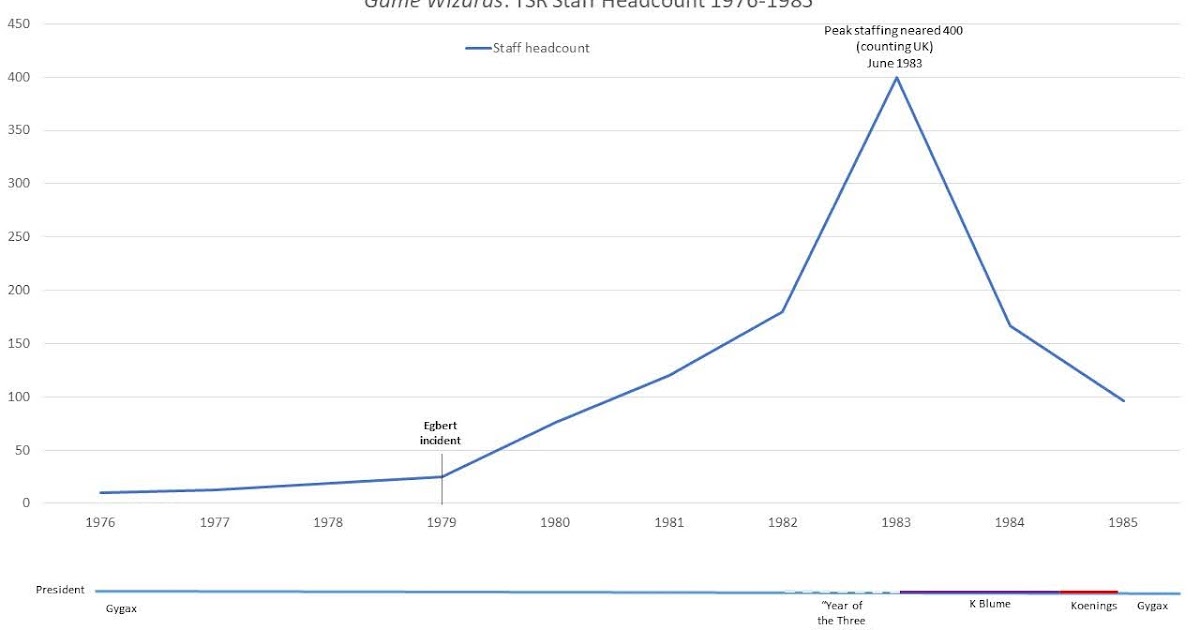In the early 1980s, the staff levels at D&D publisher TSR* peaked at near 400 people, although by the mid-80s it had dropped back down to below 100. D&/D historian Jon Peterson (whose book Game Wizards: The Epic Battle for Dungeons & Dragons is coming out soon!) charts the figures from 1976 through to 1985.
*That's the original TSR, not the current TSR!

 playingattheworld.blogspot.com
playingattheworld.blogspot.com

*That's the original TSR, not the current TSR!

Game Wizards: TSR Staffing
The above model, drawn from the narrative of Game Wizards , shows roughly how many people TSR had on staff between 1976 and 1985. Obvious...



